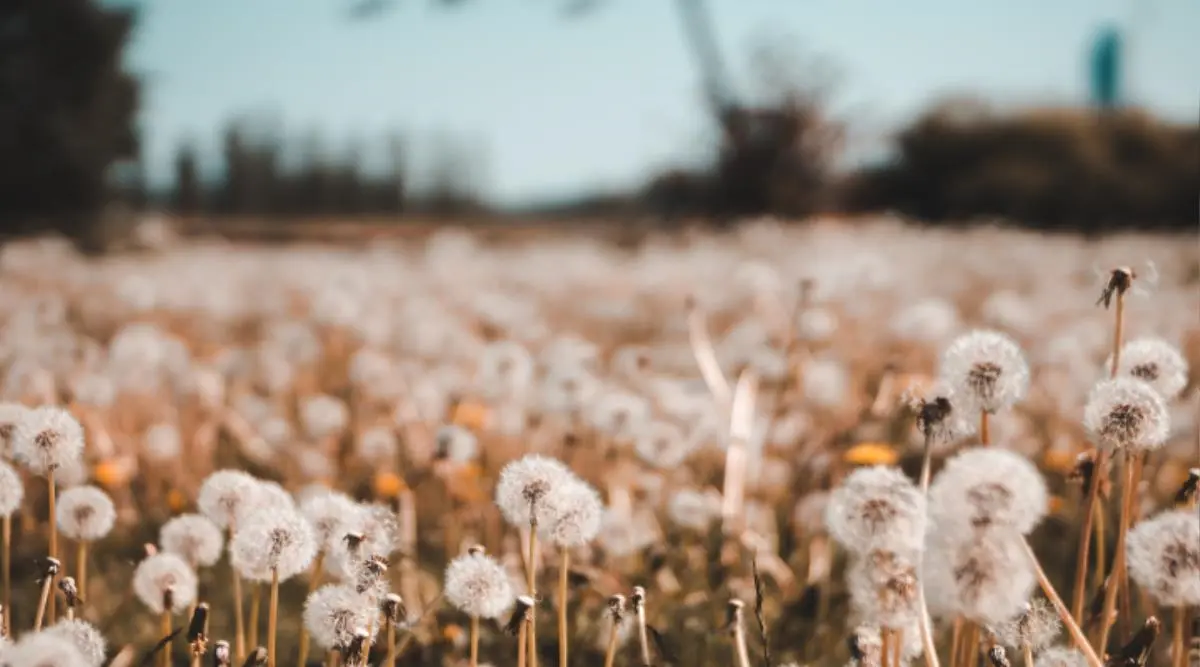Spring is in the air, and so are thousands of tiny pollens that trigger allergy symptoms in millions of people. Many of us have enjoyed this month of March as a month that has broken records for warmth, but for many others the arrival of spring and mild temperatures means the arrival of allergies.
For most people this is harmless, but if we are allergic and pollen lands on any membrane in our nasal passages, an exaggerated immune response will occur and… the party will begin! From that moment on, and if we do nothing to prevent it, histamine will course through our veins and itchy eyes, congestion or watery eyes will accompany us throughout this spring and may even last until summer for many.
In our second spring of pandemic, the most optimistic have come to think that after the advances in filters for FFP2 masks, we could even get rid of allergies and mites this year, but nothing could be further from the truth. But as the saying goes, “misery loves company”, even in the homes of people who rarely go out for a walk or do the shopping, pollen is capable of sneaking in through doors, windows and even through some other unsuspected crack.
But what can we do to protect ourselves from allergies inside and outside the home?
Don’t worry, at ASSAP Seguros we give you the 9 most recommended tips to relieve allergies in spring:
1. VENTILATE
Many people often wonder whether it is advisable to ventilate during this time of year, since this would allow allergens to enter the house.
And the answer is yes: ventilation should be done for at least ten minutes every day. The only recommendation is to avoid ventilating during the first and last hour of the day when the pollen concentration is highest, but to do so for longer periods during rainy days. But be careful! While you sleep, the windows should be closed.
2. DRY CLOTHES IN THE DRYER OR INSIDE THE HOUSE
Although the typical folding clothesline in the middle of the living room can be very cumbersome and not the most aesthetically pleasing, or even assuming that we have a dryer at home despite the energy consumption it represents, drying clothes inside the house very effectively reduces the pollen levels on our clothes.
3. GOODBYE TO THICK CURTAINS!
Thick curtains tend to accumulate more dust than those made of thin or washable fabrics. If they are thick, it is advisable that they are easy to remove so that they can be washed more frequently.
4. GOODBYE SOUVENIRS!
We also advise limiting the number of souvenirs and decorative dust-catching figurines you may have on your furniture or even something very typical on your nightstand. Often in the home of a person with allergies, less is more.
5. VISCOELASTIC PILLOWS AND SYNTHETIC QUILTS.
Viscoelastic or similar fabric is recommended over vegetable fibres. As for duvets, it is advisable to avoid wool or certain types of feathers, even though they add a touch of glamour to your bedroom.
6. VACUUM CLEANER WITH FILTERS
Clean the floor, carpets and furniture at least once a week. It is also advisable to vacuum sofas and mattresses, preferably with vacuum cleaners equipped with water or HEPA filters.
7. WASH YOUR HAIR AT NIGHT
A piece of advice that causes controversy among the many opinions given that it is not advisable to sleep with wet hair roots, in this case it is advisable to wash your hair at night and thus reduce the amount of pollen that is trapped in your scalp during the day. It is also advisable that once out of the shower, you absorb the excess water with the help of a microfibre towel. And given that temperatures often start to be high at this time, you can let the rest of your hair dry in the open air, but if not, you can always use a hairdryer.
8. MOISTURIZE YOUR NOSE
It is important to wash your nose in the morning and at night with a seawater spray or saline solution, this will help prevent or even soothe the irritation caused.
9. AVOID UNNECESSARY OUTINGS
It is not advisable to go outside on days when there is more pollen. It is advisable to stay inside on days when there is a lot of wind, as this stirs up pollen. If you do sports, it is best to do so indoors. In any case, it is important that people with allergies in spring avoid going out into the countryside or the mountains.
Every allergy is different and each of us deals with them in different ways. Identify the causes and put our advice into practice and you will see that you will start to feel better.
